In 2005, I was guardedly optimistic about the Batman reboot. I was a fan of Christopher Nolan and thought Momento was one of the most original films of the early 2000s. I didn’t know what to think or what to expect. I knew that nothing had ever matched Tim Burton’s original Batman of 1989 and that the two Schumacher movies of the 90’s were a disaster in every sense of the word. I was worried about how I was going to watch a Batman movie without Danny Elfman’s amazing score, which was synonymous with the tone of Batman from both of Burton’s films and the opening sequence to the animated series. Still, a sneak preview on the WB channel that showed a few select scenes from Batman Begins a few weeks before the movie’s release had me excitedly talking with my best friend on the phone about how much we couldn’t wait to see it and how the perfect casting was. The movie opened and was a huge success. I wondered how we would ever accept any other interpretation of the character. The movie wasn’t without its flaws (but then, no movie is) but this was the Batman from the comics brought to life on screen and it was so rewarding to finally see the character taken seriously and stay true to his comic roots while branching in new, exciting directions. My best friend and I cheered in delight, as did the rest of the audience, when the Joker was teased at the end of the film. We couldn’t wait to see how the Joker would be interpreted in this new vision.
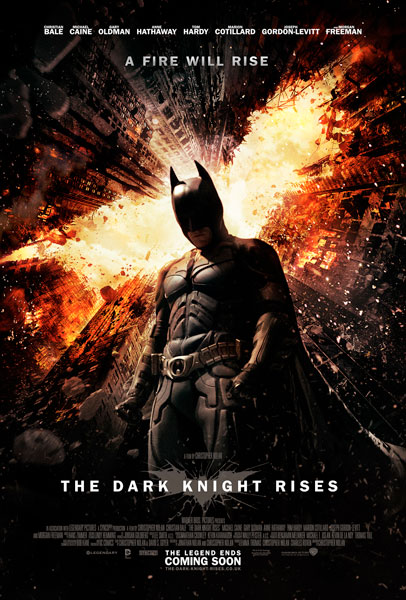
This was arguably the most anticipated movie of 2012.
2008 brought us The Dark Knight and it was a global smash. There really isn’t anything else to say about it that hasn’t been said already. It’s an incredible, epic crime movie that’s also a stunning comic book adaptation. I’ll admit openly that I was very critical about Heath Ledger’s casting when it was first announced. I was terribly wrong, of course. His performance is the staple of the whole thing and his Academy Award was well deserved. I think it’s a shame that he died and we weren’t given the chance as an audience to see his wonderful portrayal of the Joker explored further. I was also disappointed to see that Two Face died at the end of the movie, as Aaron Eckhart’s performance is incredible and the look of Two Face was both frightening and engaging. I understand that they were going for closure, but man, they created such a fascinating character with him that you could easily make a movie about Two Face and Batman. I could go on and on about the third Batman movie we COULD HAVE gotten had Ledger not died. Batman vs. Joker: Round 2 or Batman vs. Two Face as Bruce tries to bring Harvey back from the brink of madness. However, I’m not going to do that as it’s purely speculative. Instead I’m going to focus on the final film of the trilogy, The Dark Knight Rises, and the fact that while it has some incredible elements going for it, the movie as a whole does not hold up for me and doesn’t match the quality of filmmaking and storytelling exhibited in the first two.
1) It’s A Batman Movie Without Batman.
The Dark Knight Rises is 2 hours and 45 minutes long. Batman appears in the movie for less than 20 minutes. Bruce Wayne is in the movie plenty, and that’s fine, but considering this is the last time we’re going to see this rendition of the character, it would have been great to feature the title character more. Bruce’s arc is interesting, sure, but it’s Batman we want to see. The plot doesn’t give him any room to appear. The movie starts with Batman in a self imposed exile, only to have him resurface briefly before getting sidelined by a broken back. Nolan had gone on the record saying this was his last one and we hardly get to spend any time with Batman over the course of the story.
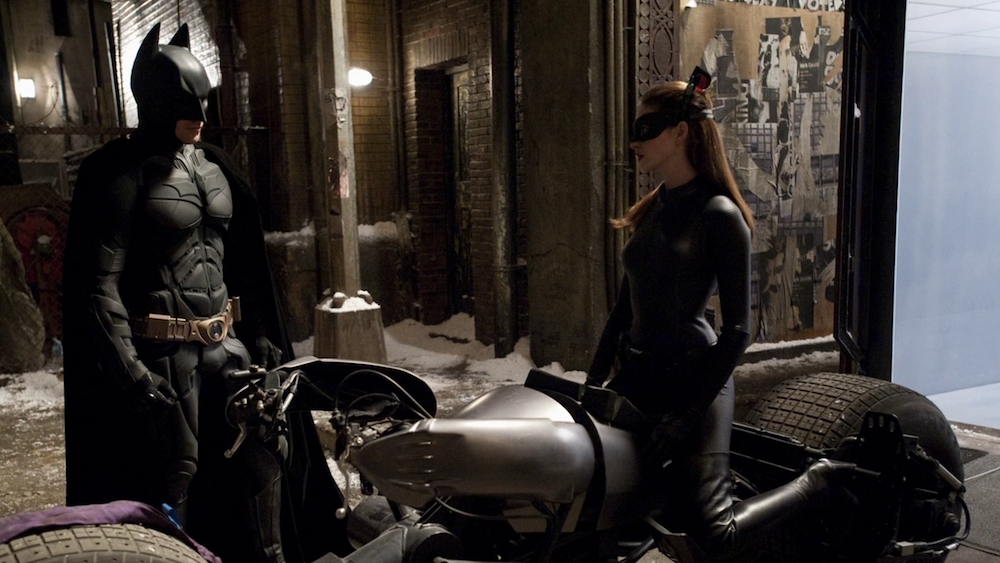
The movie needed more of this.
2) The Supporting Characters Aren’t Interesting
This is by far my biggest gripe with The Dark Knight Rises. There are way too many supporting characters and subplots that don’t go anywhere. Joseph Gordon Levitt’s character stands out because of how much screen time he’s given. The movie wants so badly for us to like him but in the end, his character is dull and doesn’t accomplish much. As the movie dragged on, and this movie drags, every time his character appeared, I would tell myself, “this is more screen time being taken away from Batman.” I understand what the movie tried to do. It wanted to give us a character who embodied the spirit of what Batman stood for so that Bruce could pass the mantle on and reclaim his life. The problem is that Bruce was trained by elite ninjas. Levitt’s a beat cop. As soon as he tries to become Batman, he’s going to get killed because he doesn’t have the proper training.
Matthew “Hot Head” Modine’s character does nothing. The movie goes out of its way to tie him into the finale where he’s shot and killed without a reaction from any of the main characters. What’s the point? Focus on Catwoman—she’s interesting! I know they were trying to show how, at his core, he was a good man who wanted to do the right thing to protect Gotham, but we don’t care about this random police Captain. We don’t spend enough time with the character to care.
Why is Juno Temple in this? Catwoman was done exceptionally well; she doesn’t need a random sidekick who disappears halfway through the movie. What about the Army commander who infiltrates Gotham only to get captured moments later? This movie tries to do too much and it feels scattered and unfocused. Meanwhile, where’s Batman? That’s who we came to see!
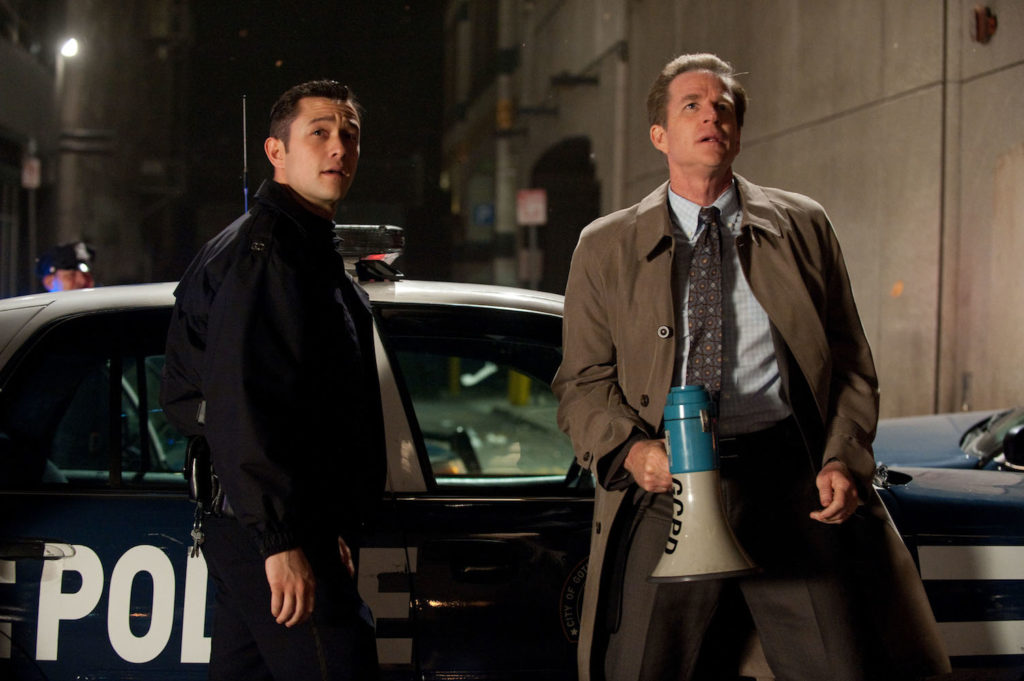
Stop wasting screen time!
3) Zimmer’s Score is Relentless and Lacks Nuance
The first two Nolan Batman movies were scored by Hans Zimmer and James Newton Howard. Zimmer added bombast and flair while Howard added emotion and sensitivity. It was a perfect combination and the two styles played perfectly off each other. This was wonderfully demonstrated in The Dark Knight where you had Zimmer’s dark and haunting theme for the Joker and Howard’s tragically beautiful theme for Harvey Dent. Nolan made Inception in between The Dark Knight and The Dark Knight Rises and Zimmer did the score for him alone. Howard felt that he’d be getting in the way for the third Batman movie and opted out. The movie suffers because of this. It’s missing Howard emotive themes and movements. Zimmer uses some adagios in his score (Catwoman’s tango-esque theme comes to mind) but the majority of it is heavy handed. Without Howard’s music as a counterbalance, the score feels shallow and less comprehensive than the other two movies.
4) Batman Doesn’t Change Anything to Defeat Bane
Batman faces off with Bane and loses. Bane breaks Batman’s back and imprisons him, leaving Bruce to watch helplessly as Bane takes over Gotham. Bruce recovers by having his back forced back into place (that’s not how that works…) and then working out. He climbs out of prison, returns to Gotham, and fights Bane again…using the exact same techniques. Nothing changes. He didn’t learn a new fighting style. He didn’t utilize new abilities or gadgets. He didn’t change his approach. He runs straight at Bane and fights him hand to hand. He almost loses again too, saved at the last minute by Catwoman. Batman doesn’t defeat him. There’s no character growth or development that leads to Batman winning in the end and that’s an unsatisfying conclusion for a character we’ve spent three movies following, rooting for, and growing attached to.
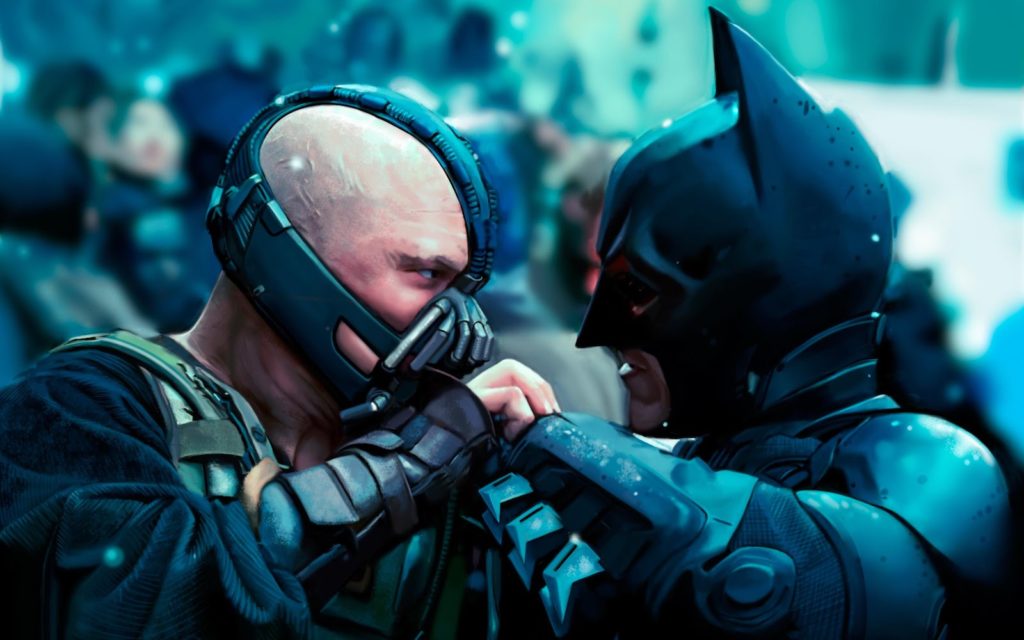
The finale left a lot of opportunities on the table.
5) Holes…So Many Holes
This movie is wildly inconsistent. Where to start? Bane robs the Gotham stock exchange during the day, but then when they flee the police, it’s nighttime. Was it an 8 hour stand off? Why doesn’t the movie explain this? There’s a whole subplot about Bane tricking the people of Gotham to turn against the rich and affluent that completely disappears almost as soon as it starts. Levitt’s character deduces that Bruce Wayne is Batman because he watched the way Bruce walked into an orphanage (I still have no god damn idea how that makes any sense). Bruce loses his fortune as a result of Bane’s robbery on the stock exchange even though there’s no way that any of the transactions Bane initiated during the robbery would be valid. In Batman Begins, they used digital effects to expand Chicago to turn it into Gotham. The skylines were extended and the buildings were dense. Dark Knight Rises shoots a number of scenes in Los Angeles and doesn’t add anything to disguise that fact. It’s the LA skyline but it’s supposed to be Gotham. It breaks the immersion. At the end of the movie, an atomic bomb is about to go off. Time is running out but everyone stops to listen to Talia’s speech and die one of the most unconvincing deaths in movie history (from an Oscar winner no less!).
I don’t hate The Dark Knight Rises but I am disappointed in the wasted potential of what the movie could have been. It doesn’t come close to the resonance or entertainment of the first two movies. There are a number of aspects to the movie that work. The realizations of Bane and Catwoman in Nolan’s world are fantastic, realistic versions of their comic book counterparts. The movie is gorgeously shot and there are great character moments throughout. These elements aren’t enough to elevate the movie as a whole, undone by its mistakes and the script’s confusing attempt to do too much. Christopher Nolan is my favorite director working today but sometimes he misses the mark and this is one of those moments. We can be critical of the artists we love. It’s the beauty of the medium of film. We know what they’re capable of and should hold them to the bar they’ve set by their previous work. Not every movie is going to be a timeless masterpiece but there’s no excuse for lazy film making and shoddy script writing, not with the talent and resources that Nolan has.
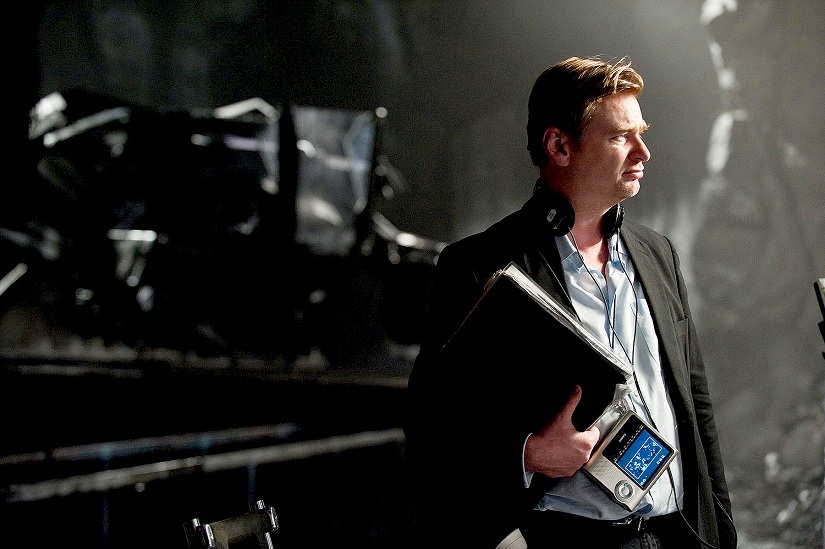
Two out of three isn’t bad.
